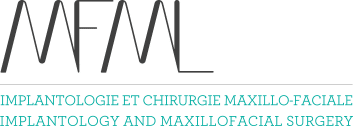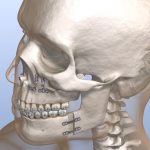Having good oral hygiene isn’t as difficult as it may seem, but it does require a certain level of diligence on your part.
The dentists at our oral and maxillofacial clinic in Greater Montreal have put together some simple tips to help you maintain a fresh, clean mouth and a radiant smile.
Why is good oral hygiene important?
Good oral hygiene is not only the key to a beautiful smile and fresh breath, but it also helps you stay healthy and away from infection. By taking care of your mouth, you’ll begin to eliminate the plaque that accumulates on your teeth from day to day.
Dental plaque is a sticky film made up of food particles, bacteria and saliva. It naturally starts to form on the surface of your teeth, especially along the gum line, within 4 to 12 hours after they were last brushed.
If this plaque isn’t removed correctly and regularly enough, it can lead to gum infections, cavities and eventually tooth loss.
Having good oral hygiene means that:
- Your teeth are clean with no signs of food or tartar
- You aren’t in any pain, nor are you experiencing bleeding gums
- You don’t have persistent bad breath
If your gums are bleeding when you brush your teeth or if you think you have chronic bad breath, consult your dentist. These symptoms may be a sign of more serious underlying issues.
Oral hygiene instructions
To avoid the negative consequences that come from poor dental hygiene, you need to include the following steps and instructions in your daily routine.
Brush your teeth at least twice a day
When it comes to personal hygiene, brushing your teeth is one of the most important things you can do. According to the Canadian Dental Association, brushing your teeth at least twice a day is essential in preventing certain oral diseases. While this may seem like a simple task, there is actually a right way and wrong way to brush your teeth.
To brush them effectively, our dental experts recommend that you use a soft toothbrush. Once you have one of these, you should gently massage your teeth from the gum line up to the crown of each tooth, only brushing in this direction. Make sure you clean both sides of each tooth without rushing and don’t forget to brush your tongue and palate as well. A good brushing session is supposed to last between 2 and 3 minutes.
Floss after brushing
The use of other oral hygiene products such as dental floss ensures a more thorough cleaning of your mouth.
Flossing removes plaque and bacteria stuck between your teeth and along the gum line. These hidden areas cannot be reached with a conventional toothbrush.
Flossing ensures optimal cleaning and eliminates bad breath by removing odorous bacteria.
Diet and oral hygiene
Having healthy teeth and gums starts with having a healthy diet. The food that you eat can directly impact the inside of your mouth.
If you wish to have good oral hygiene up until your senior years, it is advisable to reduce your consumption of certain foods where possible.
Foods high in sugar, acidity and density are often the causes of tooth damage. You should therefore try to refrain from eating foods such as jellybeans, sticky caramel and nougat. When these foods get stuck between your teeth, they create the perfect environment for bacteria to appear, multiply and potentially develop into cavities.
Fizzy drinks, fruit juices and other energizing drinks are also to be avoided and not just because of their high calorie content. These acidic drinks can wear away tooth enamel, being particularly prone to damaging that of children and teenagers.
Book an appointment with a dental hygienist
Good oral hygiene is a vital part of a healthy lifestyle. It involves brushing your teeth at least twice a day, flossing daily and adopting a healthy diet.
Health authorities recommend going to see a hygienist twice a year for a thorough clean and a check-up. By regularly having your teeth and gums examined, you reduce the risk of developing oral infections so you can keep your radiant smile intact for many years.
If you are looking for a hygienist to check over your mouth in the Montreal region, contact Clinique MFML today. Our maxillofacial specialists will happily respond to your queries and help you maintain good oral hygiene.




